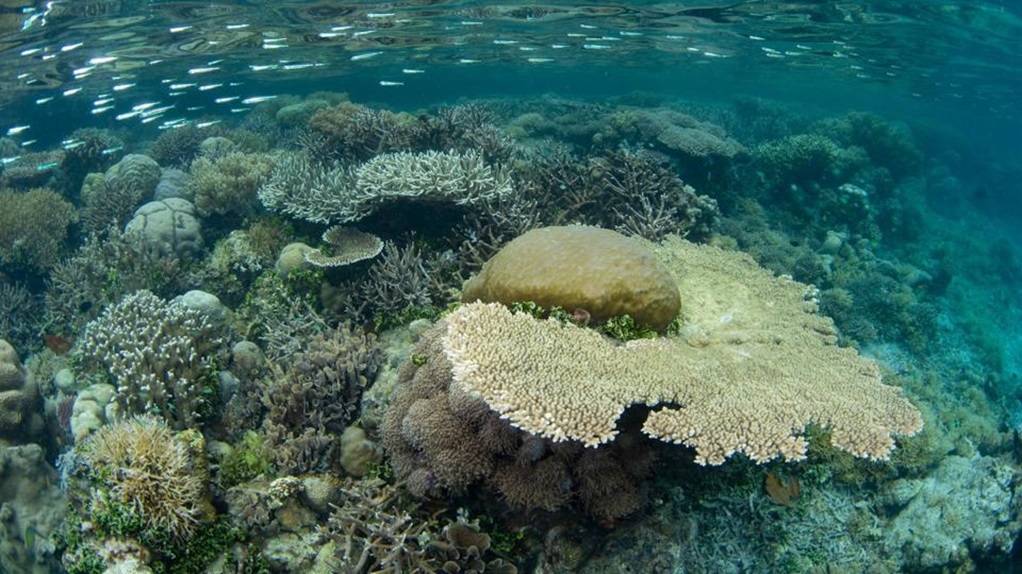A new report by the conservation mapping nonprofits Earth Insight and SkyTruth warns of the potential dangers of expanding oil and gas projects in the Pacific Coral Triangle, which is home to many endangered marine species. The report warned that continuing to extract dirty fuels in the highly biodiverse Coral Triangle could threaten coral species and countless marine animals, contribute to noise pollution and ship traffic, and risk the possibility of oil spills.
According to the report, oil and gas expansion could push the marine ecosystem past the point of no return because rising global temperatures are already causing numerous stressors in the region. Unfortunately, the demand for more energy is only increasing in Coral Triangle nations. By 2050, energy consumption in the area is projected to triple as the population increases, and while there has been a notable uptick in renewable growth, oil and gas projects are outpacing it. According to the report, over 100 offshore oil and gas blocks are being tapped for energy, with 450 more set aside for future drilling.
Furthermore, oil and gas operations are infringing on the Coral Triangle’s fragile conservation zones, including 11% of the region’s critical biodiversity areas, 16% of its marine protected zones, and 11% of its marine mammal areas. If all the existing oil and gas projects are approved, they will impact 16% of the Coral Triangle, equivalent to the size of Indonesia, according to the report.
The Coral Triangle boasts the highest diversity of marine life and coral species in the world. It’s home to a staggering 76% of all reef-building coral organisms, 15 of which aren’t found anywhere else. The complex ecosystem also hosts endangered green turtles, oceanic manta rays, and more than 2,000 of the world’s coral reef fish species. If more oil, gas, and liquefied natural gas projects are approved, they could disrupt the ecosystem, threaten the habitats of numerous species, affect the incomes of coastal communities, and contribute to marine pollution.
Dirty fuel exploration in the area will also contribute to the overheating of our planet. Extracting, transporting, and burning oil and gas releases methane and carbon dioxide, both of which are considered the primary gases causing the climate crisis. In addition, the report called for suspending dirty energy exploration in critical marine habitats within the region. It also recommended the International Maritime Organization designate the Coral Triangle as a Particularly Sensitive Sea Area, granting it special protection from international shipping.
Tags: Earth Insight and SkyTruth, Marine Ecosystem, Pacific Coral Triangle



Recent Posts
Himachal Pradesh Plans Major Boost to Public Transport with E-Buses and Digital Upgrades
Ammonia-Fueled Container Feeder Design Marks Progress in Maritime Decarbonisation
ABS Develops Industry-Leading EV Battery Fire Simulation Modeling
Wilhelmsen Ships Service Joins the Maritime Battery Forum to Accelerate Maritime Electrification
Indian Student Team Wins Communication Prize at Monaco Energy Boat Challenge 2025
Babcock’s LGE Business Secures Contract for Marine Ammonia Fuel System to Advance Shipping Decarbonisation
Associated Terminals Deploys Liebherr’s All-Electric Cranes in Landmark Move Toward Cleaner Cargo Handling
Sanmar delivers fully electric emissions-free tug to major global operator Svitzer